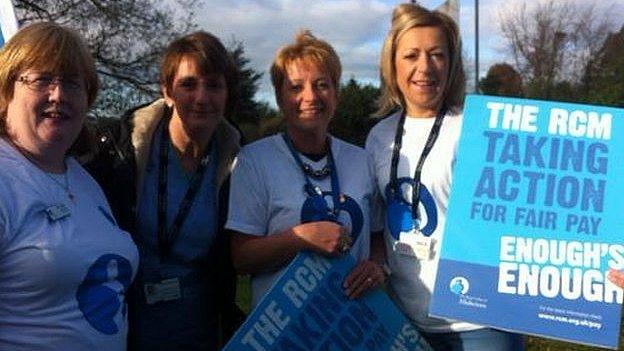Health strike: Trust chiefs warn of 'intense strain'
- Published

Nurses and other healthcare workers have been taking industrial action for several weeks amid complaints of poor pay and staffing levels
Plans by two health unions to strike this week could push the system "beyond tipping point", the heads of NI's health trusts have warned.
Six chief executives urged unions to postpone strikes planned for 8 and 10 January.
In a statement, they said the fall-out could be "much more serious" than the 18 December strike.
But the Royal College of Nursing (RCN) and Unison said they were committed to strike.
They told BBC News NI that the public was firmly behind them.
Anne Speed of Unison, said patient safety had been "a primary consideration" throughout members' industrial action and remained so.
"The crisis in our health service caused by over 7,000 vacant posts and the absence of a strategic investment and planning on staffing is one of the two core reasons for this dispute," she said.
"Assessing patient safety is the responsibility of the trusts."
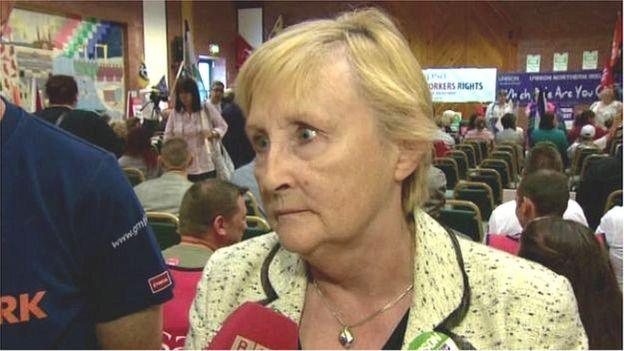
Anne Speed, Unison, called for pay parity
Ms Speed said the union would continue to meet the trusts to address any concerns about patient safety.
"We would again call on the trust chief executives to urge the secretary of state and senior officials within the Northern Ireland Civil Service to act now in the public interest to restore pay parity and resolve this dispute," she said.
'Winter pressures'
In their joint statement, the health chiefs said pressures on the service were building.
They said they recognised why workers were going on strike, but pointed out that there was already "considerable strain" on the system with "severe winter pressures".
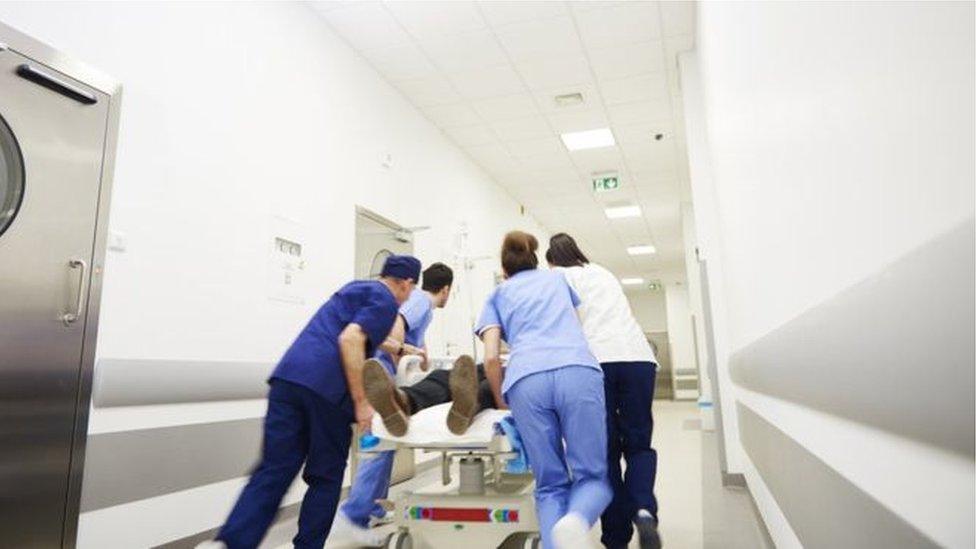
Trust chiefs have warned that winter pressures are particularly intense
"These pressures continue to build and are particularly intense today," the statement said.
"At 2pm on Friday 3 January, there were 136 patients waiting over 12 hours in emergency departments to be either admitted to a hospital bed or discharged - and 401 over the previous 24-hour period.
"As of 10:15am today, 7 January, there were 217 patients in the emergency departments of Northern Ireland's acute hospitals waiting over 12 hours and 456 over the last 24-hour period. "
On Wednesday, nurses from the RCN will stage their second day of strike action over staffing levels and pay.
Healthcare members of Unison, Northern Ireland's largest union across the health and social services system, will be taking strike action on Friday.
It's understood that some of Northern Ireland schools for children with special needs could be closed because of the strikes.
Pay parity
Nurses and other healthcare workers have been taking industrial action for several weeks amid complaints of poor pay and staffing levels.
Midwives in Northern Ireland are being asked if they are willing to take industrial action over pay.
The ballot by the Royal College of Midwives (RCM) opened on Monday and will close on 29 January.
The union said midwives in Northern Ireland were paid less than their counterparts in Great Britain.
Health workers say they want to be paid the same as their counterparts in England, Scotland and Wales.
Pay parity between Northern Ireland and the rest of the UK ended in 2014.
- Published6 January 2020
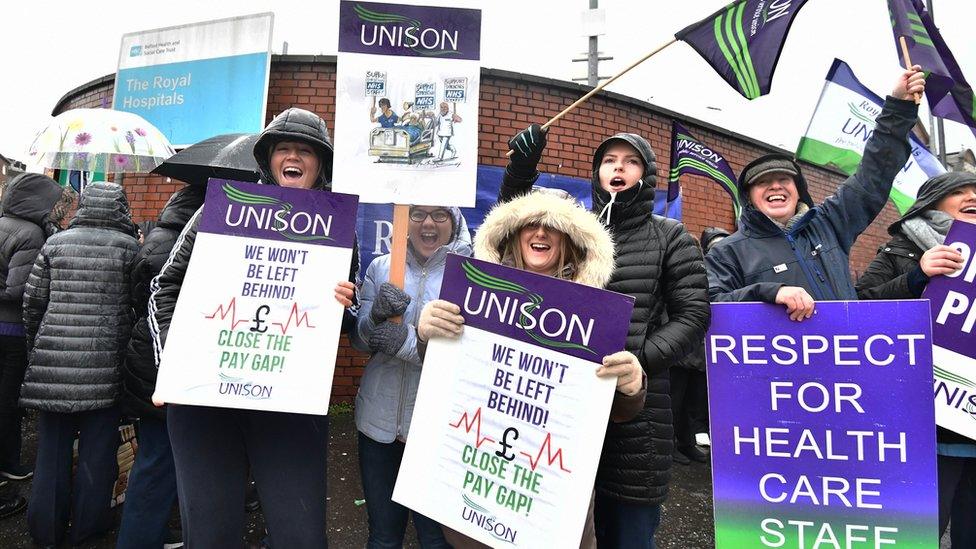
- Published24 December 2019
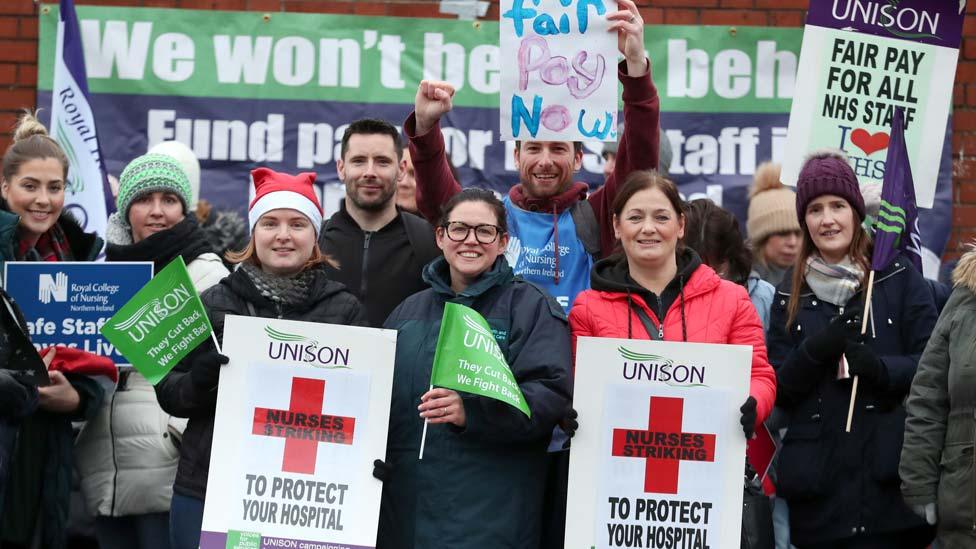
- Published30 April 2015
